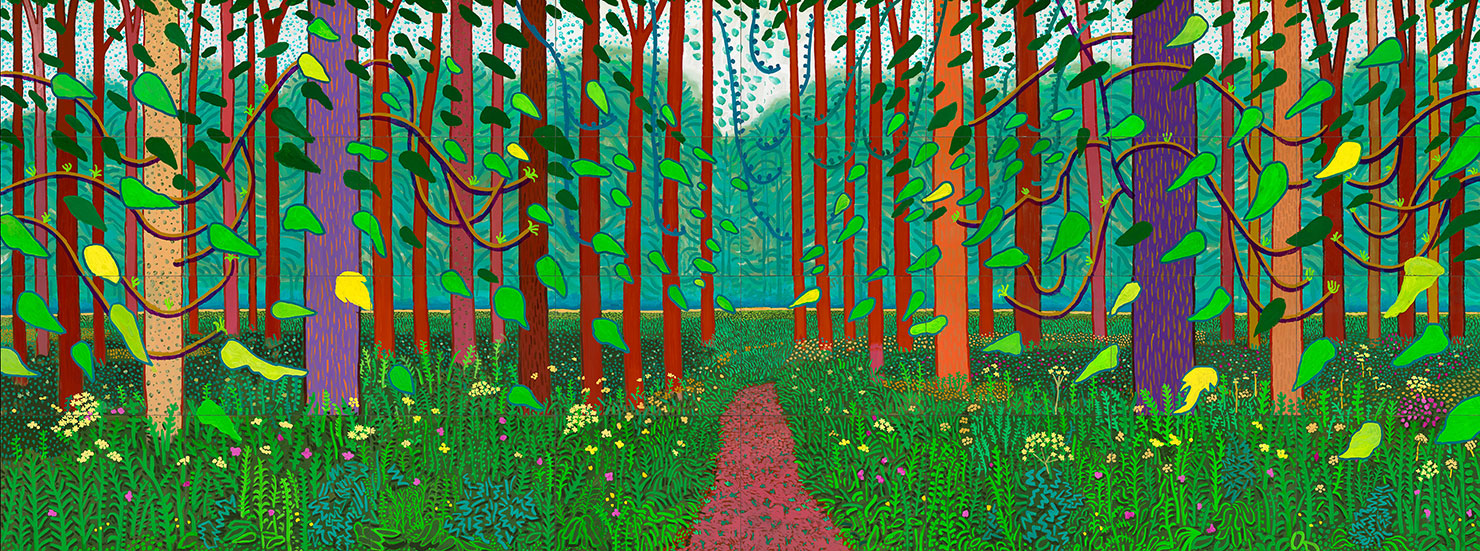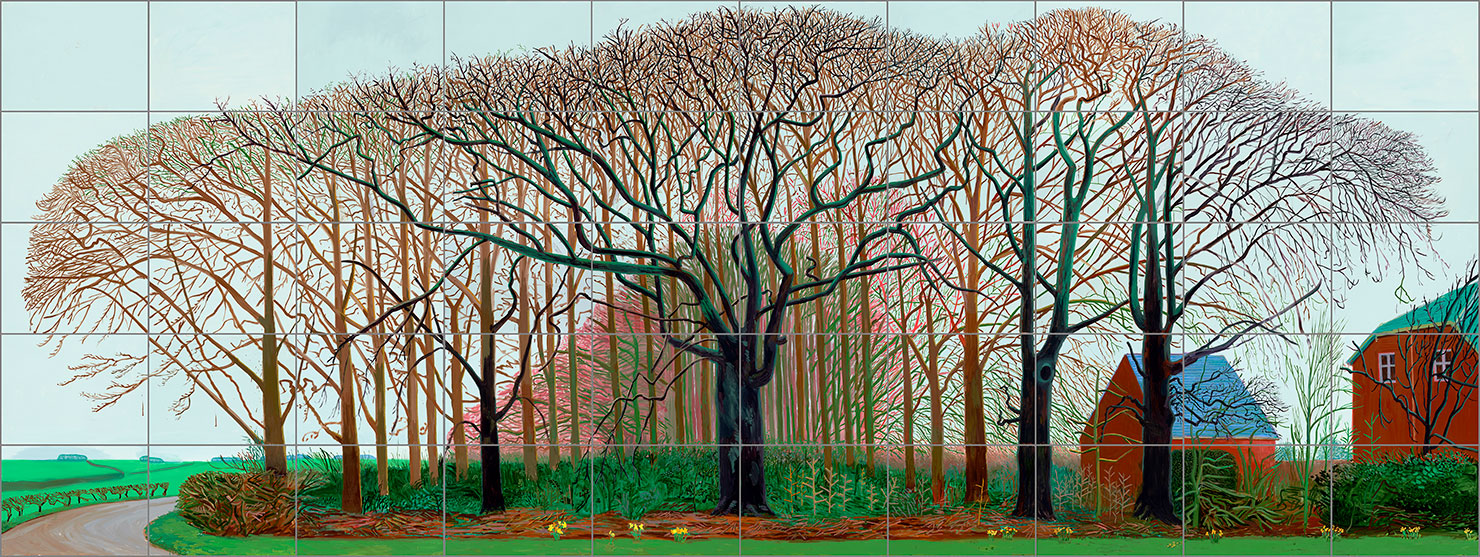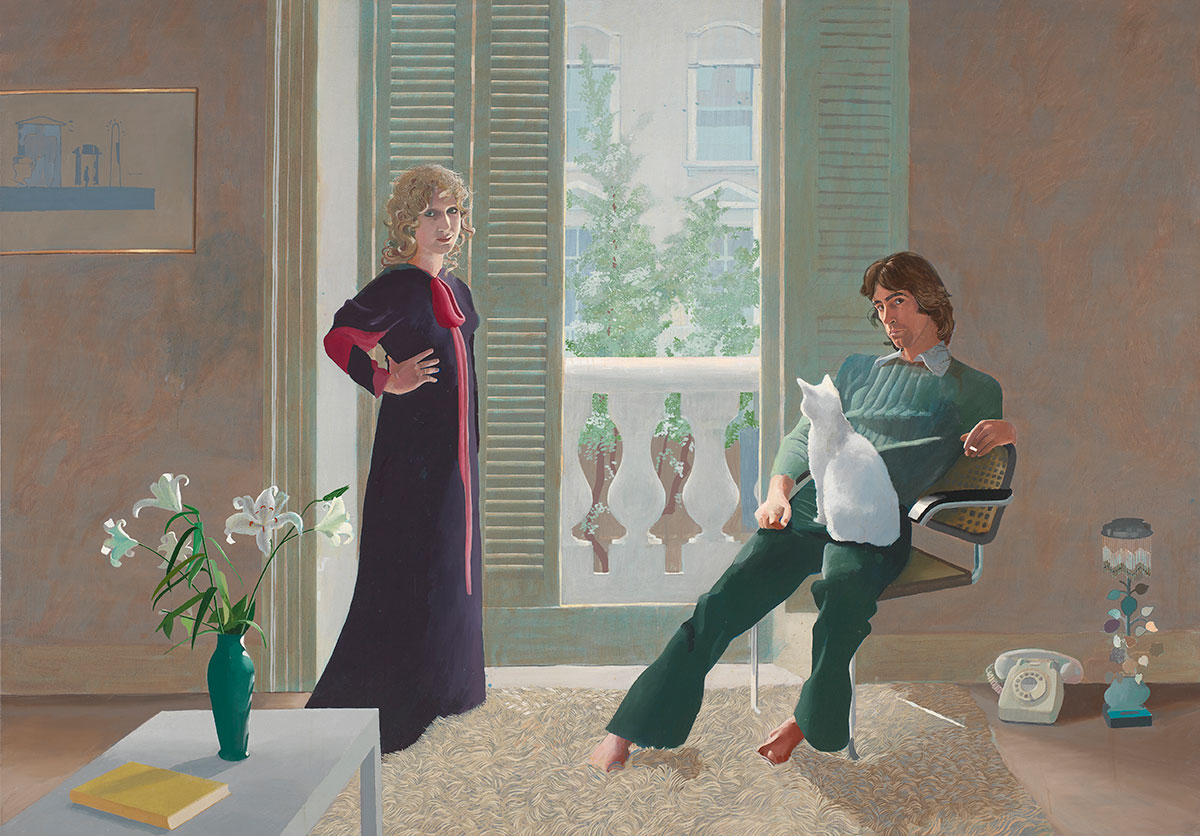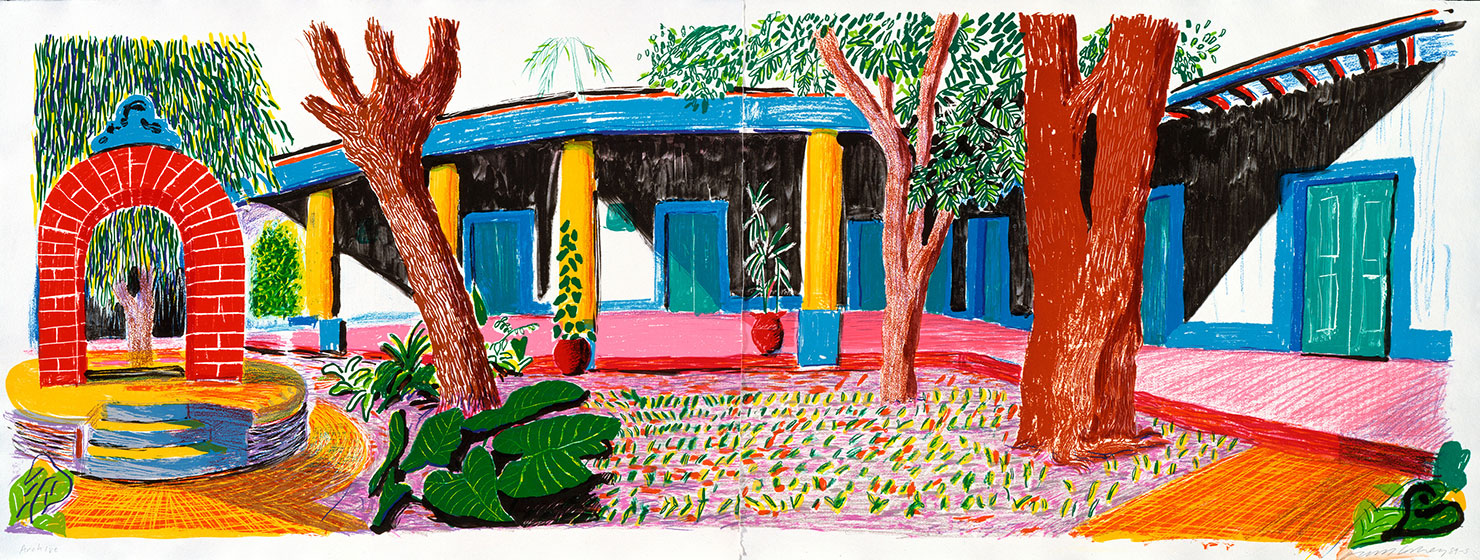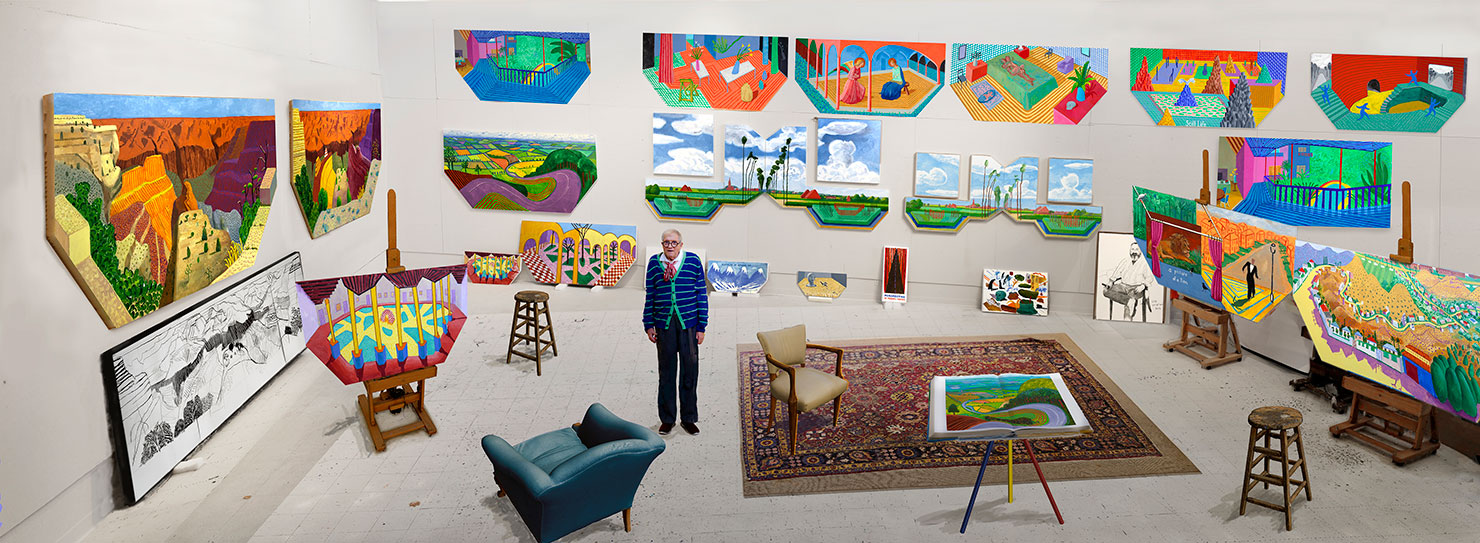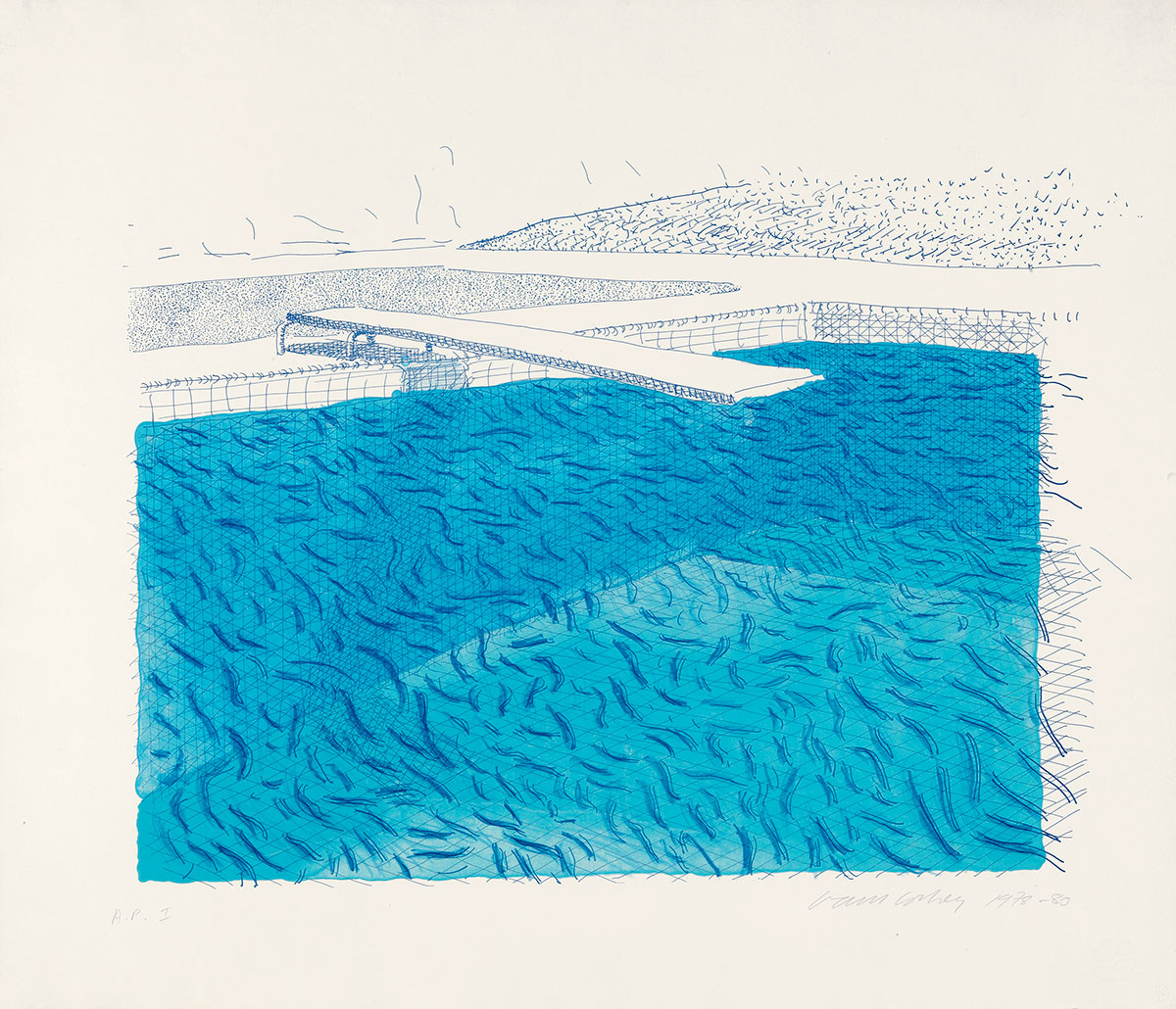PRESENTATION: David Hockney-Moving Focus
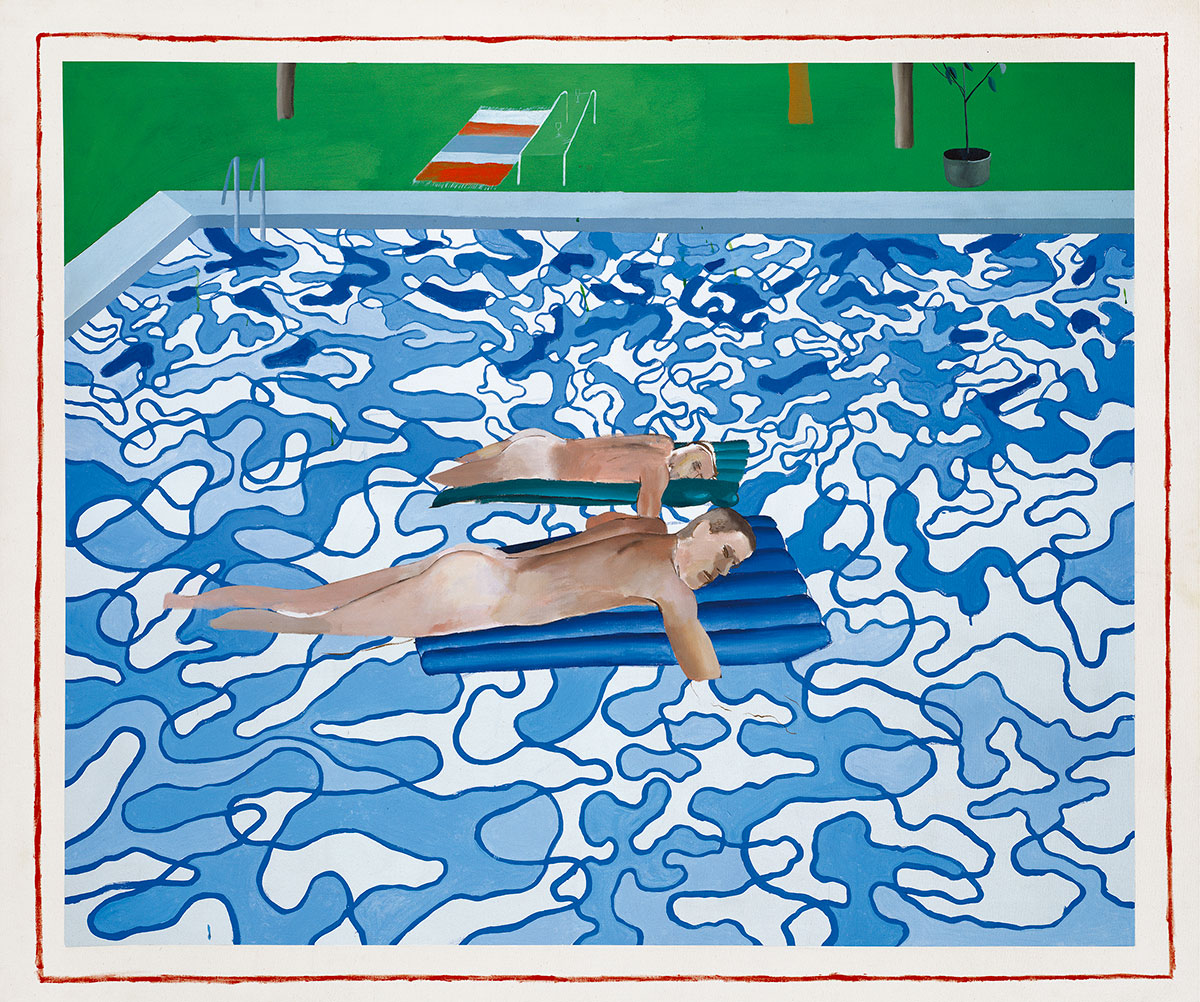 David Hockney has produced some of the most vividly recognizable images of this century. His pursuits stretch across a vast range of media, from photographic collages to full-scale opera stagings and from fax drawings to an intensive art historical study of the optical devices of Old Masters. Like other Pop artists, Hockney revived figurative painting in a style that referenced the visual language of advertising. What separates him from others in the Pop movement is his obsession with Cubism. In the spirit of the Cubists, Hockney combines several scenes to create a composite view, choosing tricky spaces where depth perception is already a challenge.
David Hockney has produced some of the most vividly recognizable images of this century. His pursuits stretch across a vast range of media, from photographic collages to full-scale opera stagings and from fax drawings to an intensive art historical study of the optical devices of Old Masters. Like other Pop artists, Hockney revived figurative painting in a style that referenced the visual language of advertising. What separates him from others in the Pop movement is his obsession with Cubism. In the spirit of the Cubists, Hockney combines several scenes to create a composite view, choosing tricky spaces where depth perception is already a challenge.
By Efi Michalarou
Photo: Kunstmuseum Luzern Archive
David Hockney rose to fame during the 1960s for his carefree images of Los Angeles and during the following decade for his life-size double portraits. “David Hockney: Moving Focus”, the first comprehensive exhibition of Hockney’s work in Switzerland, brings together more than 120 paintings, drawings, prints and digital works dating from 1954 to today. Charting his early days as a student in London to his latest iPad drawings, it reveals Hockney’s delight in artistic experimentation and lifelong obsession with perspective. Comprised chiefly from Tate’s collection, the exhibition also features a number of important loans from public and private collections in Europe and beyond. At the heart of the exhibition are two monumental landscape paintings. “Bigger Treas Near Water Or/ Ou Peinture sur Le Motif pour Le Nouvel Age Post[Photographique” (2007) iss Hockney’s largest painting to date, measuring 4 ½ X 12 by metres. Comprised of 50 individual canvases, it shows a view of the artist’s native Yorkshire shortly before the onset of spring. For weeks, the artist travelled to and from this scene, working outside on six to ten canvases at a time and assembling them back in the studio with the aid of computer software to register the progress of the work. “The Arrival of Spring in Woldgate, East Yorkshire” (2011) is a multipart landscape of a magical forest that cordially welcomes viewers with colorful leaves and vines. This bold and cheerful depiction anticipates Hockney’s later iPad drawings that appear in the exhibition as a sequence of video animations. Also on show are Hockney’s iconic pool paintings, his painted and drawn portraits of friends and family including the celebrated “My Parents: and two important suites of early etchings inspired by William Hogarth and whose release coincided with the decriminalisation of homosexuality in Britain. As the exhibition reveals, Hockney’s focus is constantly moving as he repeatedly tries out new styles to challenge our visual habits. Taking up the mantle of Pablo Picasso and other cubist models of picture making, a body of Hockney’s work from the 1980s tackles the problem of how to depict our world of time, movement and space on a flat surface. Here, the pergola of a Mexican hotel is transformed into a wild thicket where different vanishing points are aimed at simultaneously and there is no longer a fixed standpoint. In the “Perspective Lesson” Hockney takes a stand against one-point perspective. He depicts a chair from the ‘wrong’ perspective, i.e., with the vanishing point in front of the object. Behind it, a chair depicted correctly from a central perspective is struck out by means of a bright red cross. A group of the artist’s most recent works, take the artist’s obsession with the multiple realities of three dimensional space to dizzying new heights. “In the studio, December 2017” comprised of 3,000 digital images, this panorama of the artist standing among old and new paintings in his studio is not simply a photograph, but is, as Hockney describes, a “photo- graphic drawing”.
Photo: David Hockney, California Copied from 1965 Painting in 1987, Acrylic on canvas, 152.1 x 182.6cm, Los Angeles County Museum of Art, Gift of the artist, © David Hockney
Info: Curators: Fanni Fetzer and Helen Little, Kunstmuseum Luzern, Europaplatz 1, 6005 Luzern, Switzerland, Duration: 9/7-30/10/2022, Days & Hours: Tue & Thu-Sun 10:00-18:00, Wed 10:00-19:00, www.kunstmuseumluzern.ch/
